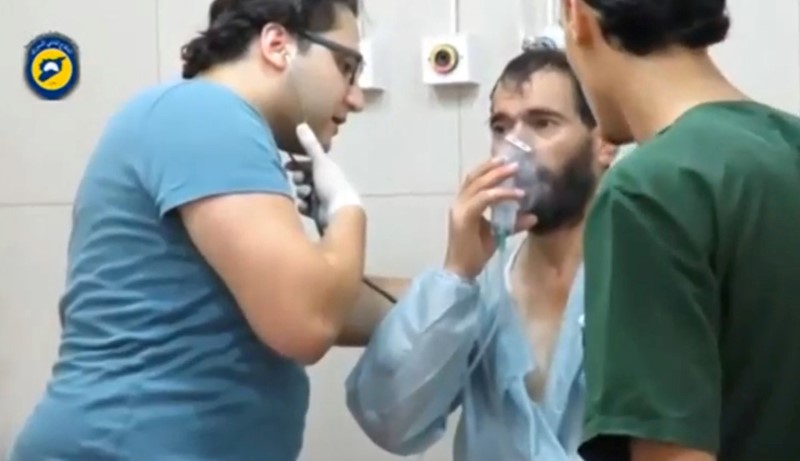By Ju-min Park
SEOUL (Reuters) - The world's chemical weapons watchdog chief said on Thursday the group will investigate suspected use of chlorine gas in an opposition area of the Syrian city of Aleppo, calling reports of the gas attack disturbing.
The U.N. Security Council is due to discuss a report by the United Nations and the watchdog group, the Organization for the Prohibition of Chemical Weapons (OPCW), that blames Syrian government forces for previous toxic gas attacks.
The Syrian Civil Defence, a rescue workers' group which operates in rebel-held areas, said government helicopters dropped barrel bombs containing chlorine on Tuesday in Aleppo that caused suffocation in 80 people.
The Syrian Observatory for Human Rights said on Wednesday that one person had died as a result of the attack.
"More recent reports on the use of chlorine are disturbing," OPCW chief Ahmet Üzümcü told reporters in Seoul where he was attending a security forum, referring to the attack in Aleppo.
The group will use all available means to investigate the allegations of toxic gas use in the attack and submit the findings to members states of the Chemical Weapons Convention, Üzümcü said.
A Syrian military source denied on Wednesday accusations that the army had launched a chlorine gas attack in Aleppo, saying the charges were an attempt by rebels to divert attention away from their defeats.
A year-long U.N. and OPCW inquiry into Syria, unanimously authorized by the 15-member Security Council, focussed on nine gas attacks in seven areas and determined that Syrian government troops were responsible for two of them, in 2014 and 2015.
The Syrian government has denied previous accusations it used chemical weapons during the five-year-old civil war.
The inquiry also found that Islamic State militants have used sulphur mustard gas.
The report's findings set the stage for a Security Council showdown between the five veto-wielding powers, likely pitting Russia and China against the United States, Britain and France over how to respond.
Aleppo has been divided for years into government and rebel sectors, but President Bashar al-Assad's army has put the opposition areas under siege and now hopes to capture the whole city in what would be a devastating blow to his enemies.
Footage of the apparent chlorine gas attack on the Sukari district, near Aleppo's main battlefield in the city's southwest, showed crying children being doused with water and then lying on hospital beds and breathing through respirators.
